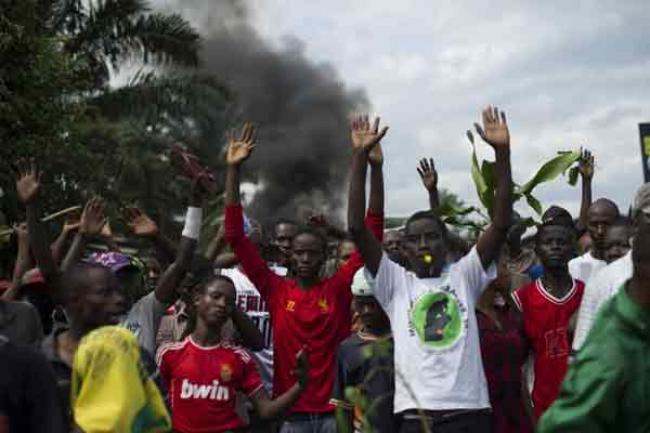Just Earth News 07 Feb 2017, 05:22 am Print

IRIN/Phil Moore (file)
Also worrying, according to a news release issued by the Office of the UN High Commissioner for Human Rights (OHCHR) were two bills adopted by the National Assembly of Burundi last December that require local non-governmental organizations (NGOs) to obtain authorization from the Minister of the Interior for any activity and that the work of foreign NGOs must comply with priorities set by the Government.
“These moves are just the latest in a series of attacks on the rights to freedom of expression and association in Burundi,” said the rights experts.
“Disturbingly, these measures take particular aim at human rights defenders and independent civil society, and are being used to unduly obstruct and criminalize their work on broad and often fallacious grounds.”
Authorities in Burundi banned five civil society organizations in October 2016. In December 2016, they also barred two other groups, one of which was working for good governance and the fight against corruption. Additionally, four other organizations have also been provisionally suspended.
Also in the release, the experts reiterated the “unanimous” strong stance of various bodies, including the UN Human Rights Council – the inter-governmental body responsible for promoting and protecting human rights around the world – on allegations of serious human rights violations in Burundi, the experts called on the Governmental to “an end to the climate of impunity currently prevailing in the country” and to cooperate with the Commission of Inquiry on Burundi and with OHCHR in a positive and collaborative manner, as an essential step towards ending the major crisis facing the country.
“It is crucial that the State promotes and protects the rights to freedom of expression and association enshrined in the International Covenant on Civil and Political Rights, to which Burundi is a State party,” they said.
“All individuals, including human rights defenders, have the right to express themselves and associate freely, without fear of threats, intimidation, violence, arbitrary detention or enforced or disappearance,” the experts added.
The human rights experts voicing their concern included:
Maina Kiai, UN Special Rapporteur on freedom of peaceful assembly and of association
Michel Forst, UN Special Rapporteur on the situation of human rights defenders
David Kaye, UN Special Rapporteur on the right to freedom of opinion and expression
Agnès Callamard, UN Special Rapporteur on extrajudicial, summary or arbitrary executions
The UN Working Group on Enforced or Involuntary Disappearances
Independent experts and Special Rapporteurs are appointed by the Geneva based Human Rights Council to examine and report back on a specific human rights theme or a country situation. The positions are honorary and the experts are not UN staff, nor are they paid for their work.
- Fire at Hindu teacher’s home rekindles concerns over minority attacks in Bangladesh
- UK MP Bob Blackman raises alarm over rising attacks on Hindus in Bangladesh
- Winter without gas: Hazara women stage sit-in outside SGC office in Pakistan
- Bangladesh: Hindu Awami League leader’s death in jail sparks outrage, family blames authorities
- Who is Ubaidullah Ahmadi? Afghan journalist detained in Pakistan





-1763561110.jpg)
